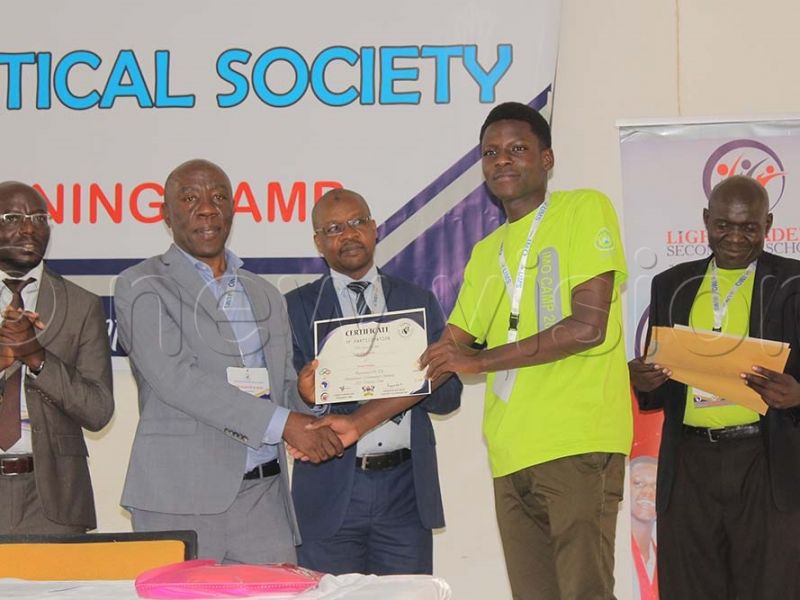(This article was first published on January 20, 2023)
By David Lukiiza
Fifteen students from schools nationwide have been selected to compete in the International Mathematical Olympiad (IMO) 2023.
On Wednesday, they completed three days of training at Light Academy Secondary School in Kampala.
Merisa Mushabe, a senior four student at Mt. St. Mary’s Namagunga, is excited to be among the competitors this year.
Mushabe said the competition will not only expose her internationally but also give her options for solving community problems at the international level.
“This is not the usual mathematics of calculating numbers, and I hope to use the skills to find possible solutions to community problems,” he says.
The chief guest, also a mathematician, and the deputy vice chancellor for Makerere University, Prof. Eng. Henry Mwanaki Alinaitwe, said the country needs more scientists for it to sustain the ministry of science and technology and its 2040 goals.
“We hope to have an enabling environment and resources for scientific research and knowledge-based development for industrialization, competitiveness, and employment creation as a result of having well-equipped scientists, and this can be as a result of nurturing young people like these,” he said.
According to Dr. Joseph Sebuliba, president of the Uganda Mathematical Society, mathematics competitions are held each year, with students taking Math papers 1 and 2 in March and June, respectively.
Sebuliba goes on to say that at this point, they are less concerned with how well the student knows the subject and more concerned with how well they can apply it in real life.

“This year, as we focus on the international competitions, we intend to have both O and A level students compete because we believe our country has brilliant students who can easily compete with senior six members,” he says.
As a result, Sebuliba confirms that the best student was from O-level, and he believes competing in Japan will provide him with enough exposure as a student.
James Semaganda, the publicity secretary for the Uganda Mathematical Society, says the fact that only students are to compete doesn’t necessarily mean other students are not good in the subject, but they are limited due to various circumstances.
“We would love to send more students for the competitions, however, we are always limited by finances. “However, we have been able to secure sponsorships from companies and non-governmental organizations for such students,” he says.

